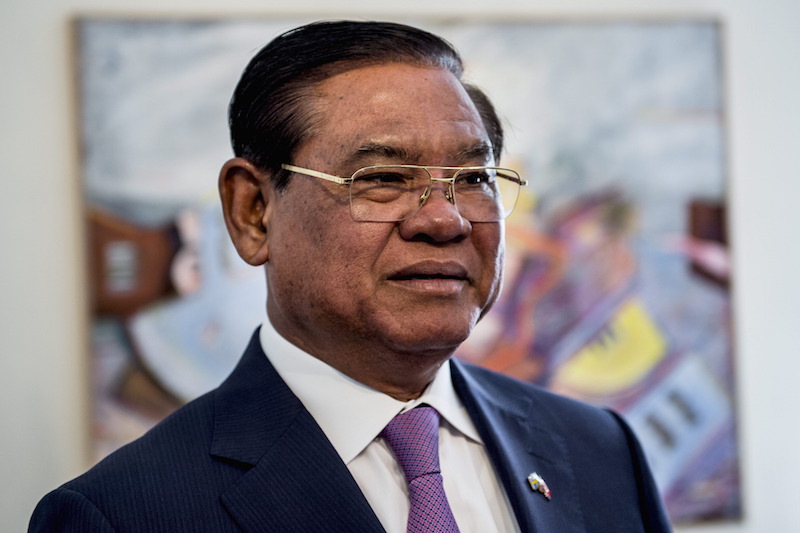Cambodians who have fallen victim to human trafficking have not received sufficient protection against exploitation or support from the government in navigating the judicial system, Interior Minister Sar Kheng said on Wednesday.
As Cambodians continue to look for jobs abroad, propelled by a scarcity of work at home, officials have a responsibility to identify and take action against illegitimate recruitment agencies and make sure citizens are informed about the risks of labor trafficking, he said.

“In the implementation of the law regarding human trafficking, many victims have not received complete protection by the law,” he said during a national workshop on law enforcement related to human trafficking at InterContinental Phnom Penh hotel.
Mr. Kheng said he had witnessed various illegal border crossings to neighboring countries in past visits to the provinces.
“Unofficial recruitment agencies transport people through these illegal checkpoints,” he said. “I hope that the Ministry of Labor and Vocational Training will continue to work hard to address this work, specifically controlling these companies.”
While the government has made an effort to create jobs domestically, there are still not enough to meet demand, he said, making it crucial that Cambodians have the knowledge and support they need as they seek jobs abroad.
“Those people face serious difficulties when they are cheated or trafficked or exploited or sexually abused,” he said. “So they need the police or authorities to help intervene for them, and they need the courts to help find justice for them.”
According to Labor Minister Ith Samheng, 59 private recruitment companies are actively working in the country. This year alone, he said, almost half of those companies had complaints filed against them, with 54 cases filed by a total of 187 migrant workers, 58 of whom were women.
Broad reforms to the government’s approach to trafficking will be necessary for them to effectively support victims, according to migrant rights advocates.
“The anti-human trafficking police have improved tenfold, but I think one of the areas that is still going to need to be improved is actually gathering the right information from the victims themselves,” said Helen Sworn, international director of anti-trafficking NGO Chab Dai.
With victims often not understanding what it means to be trafficked, let alone able to process the trauma, officials need to spend more time drawing out details that will help them effectively prosecute offenders, she said. “A lot of the truth emerges over time.”
As it stands, the most powerful perpetrators are escaping prosecution altogether, said Moeun Tola, the executive director of labor rights NGO Central.
“Only the small fish have been arrested,” he said, referencing one-off brokers and employees of large recruitment agencies. “The brokers who are like big fish, who link themselves with high-ranking officials, have never been arrested and prosecuted.”
“All those kinds of links should be cleaned up. Otherwise the police are not brave enough to take action against those people.”